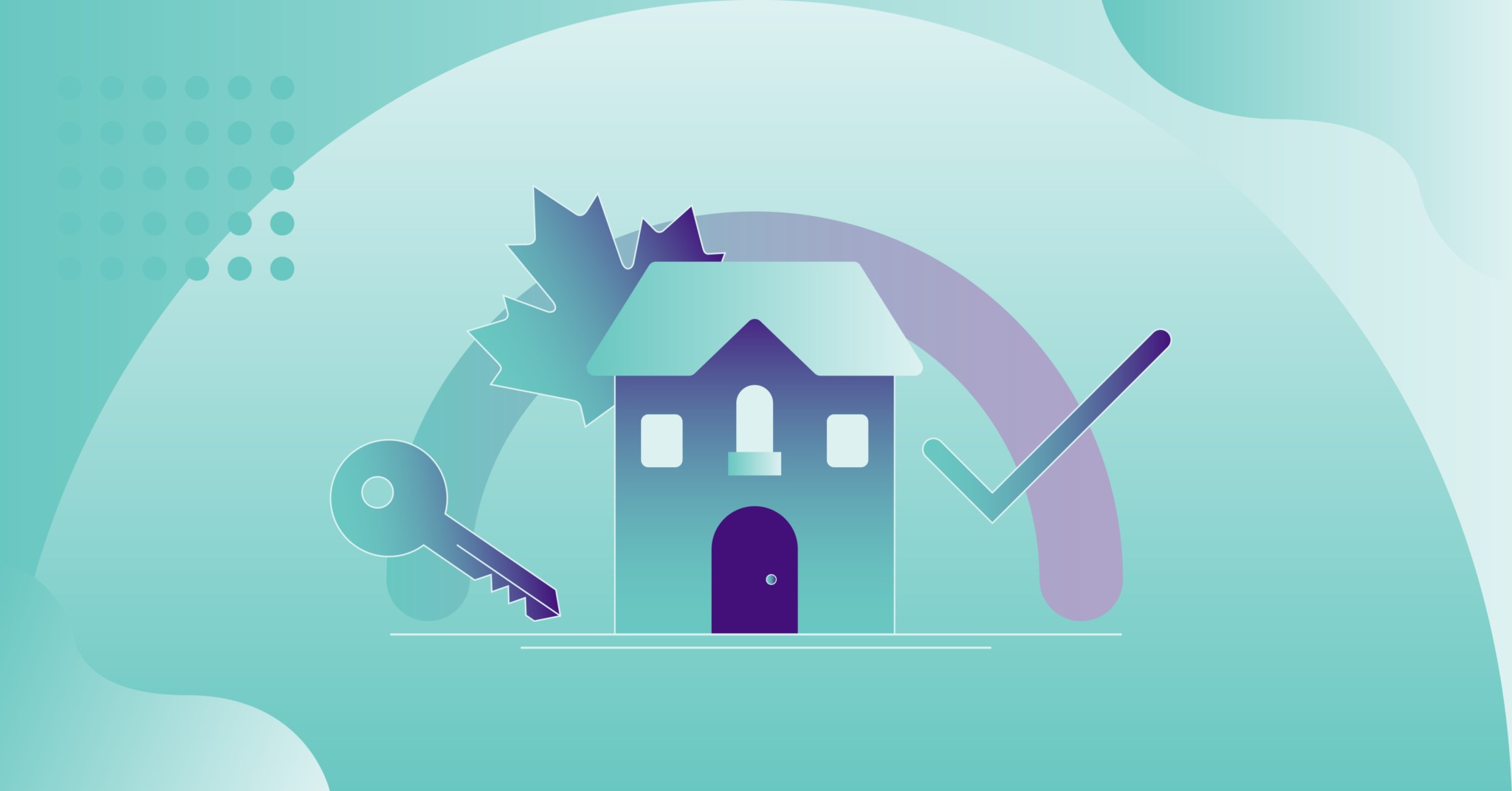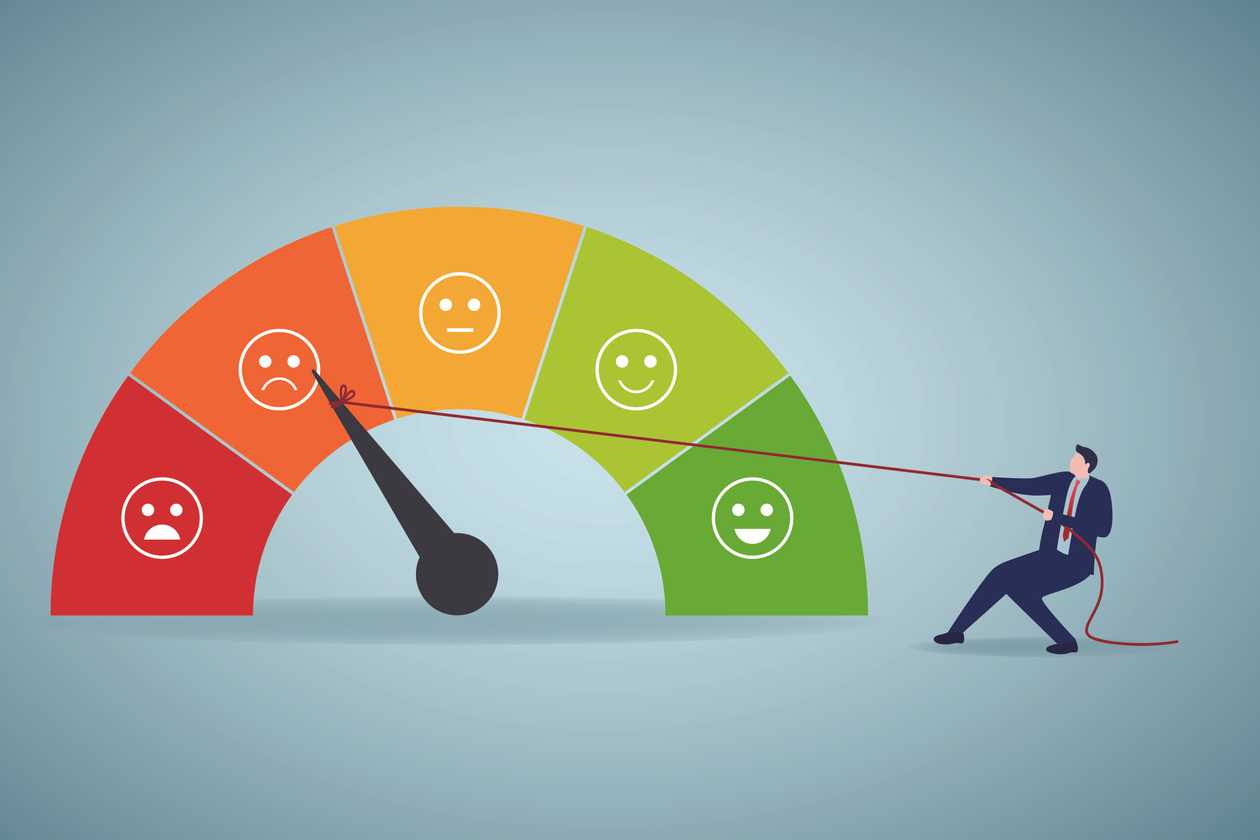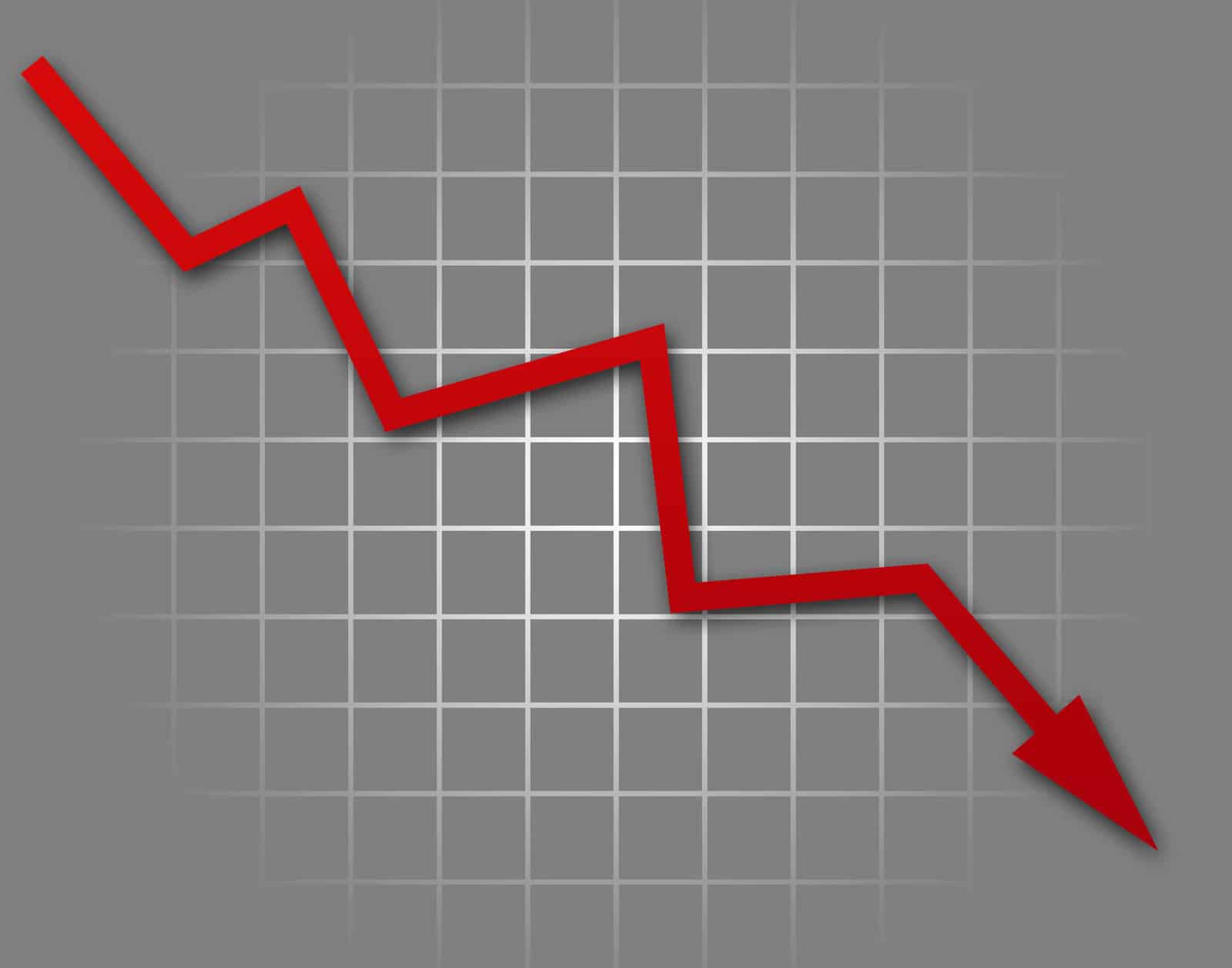

Finance
How To Increase Credit Score In Canada
Modified: March 10, 2024
Learn how to improve your credit score in Canada and take control of your finances with valuable tips and strategies from the experts.
(Many of the links in this article redirect to a specific reviewed product. Your purchase of these products through affiliate links helps to generate commission for LiveWell, at no extra cost. Learn more)
Table of Contents
- Introduction
- Understanding Credit Scores in Canada
- Checking Your Current Credit Score
- Disputing Errors on Your Credit Report
- Paying Bills on Time
- Reducing Credit Card Debt
- Keeping Credit Utilization Low
- Building Credit with Responsible Credit Habits
- Avoiding Opening Multiple Credit Accounts
- Monitoring Your Credit Score Regularly
- Conclusion
Introduction
Welcome to our comprehensive guide on how to increase your credit score in Canada. Having a good credit score is essential for many aspects of your financial life, including obtaining loans, credit cards, and even renting an apartment. A strong credit score indicates to lenders and financial institutions that you are a responsible borrower and are likely to repay your debts on time.
In Canada, credit scores range from 300 to 900, with a higher score indicating a lower credit risk. While building and maintaining a good credit score may seem challenging, it is definitely achievable with the right knowledge and strategies.
In this article, we will explore the various factors that affect your credit score and provide you with actionable tips to help you improve it. Whether you are starting from scratch or looking to boost your existing score, we’ve got you covered.
From understanding how credit scores work to taking steps to strengthen your financial standing, our guide will provide you with the necessary insights and practical steps to make a positive impact on your credit rating. So let’s dive in and discover how you can increase your credit score in Canada!
Understanding Credit Scores in Canada
Before we delve into the ways to improve your credit score, it’s important to understand how credit scores are calculated in Canada. Credit scores are generated based on the information contained in your credit report, which is compiled by credit bureaus such as Equifax and TransUnion.
In Canada, credit scores are typically calculated using a weighted average of several factors, including:
- Payment History: This factor accounts for the largest portion of your credit score. Lenders want to see that you consistently make your payments on time. Late payments, defaulted accounts, and collections can have a significant negative impact on your score.
- Credit Utilization: This refers to the amount of credit you are currently using compared to the total amount available to you. Keeping your credit utilization below 30% is generally recommended for a healthy credit score.
- Credit History Length: The length of your credit history also plays a role in your credit score. Lenders may view borrowers with a longer credit history as more reliable and less of a risk.
- New Credit: Opening too many new credit accounts within a short period of time can be seen as a red flag by lenders. It’s important to be mindful of how frequently you apply for credit.
- Credit Mix: Having a variety of credit types, such as credit cards, loans, and a mortgage, can show lenders that you can handle different forms of credit responsibly.
It’s worth noting that credit score models may vary between credit bureaus, resulting in slight differences in your scores. Additionally, each lender may have their own criteria and thresholds when assessing creditworthiness.
By understanding the components that contribute to your credit score, you can take targeted actions to improve it. In the next sections, we will explore specific strategies that can help you increase your credit score in Canada.
Checking Your Current Credit Score
Before you start working on improving your credit score, it’s important to have a clear idea of where you currently stand. Fortunately, checking your credit score in Canada is relatively easy.
There are two main credit bureaus in Canada: Equifax and TransUnion. Both offer online services where you can access your credit report and credit score. While these services may require a subscription or payment, it’s worth investing in your financial well-being.
Once you have access to your credit score, take the time to review your credit report. Look for any errors or discrepancies that may be negatively impacting your score. Common errors include outdated information, incorrect payment statuses, or accounts that don’t belong to you.
If you discover any errors, it’s essential to take action. Contact the credit bureau in question and provide them with the necessary documentation to dispute the inaccuracies. They have a legal obligation to investigate and correct any errors on your credit report. Removing such errors can have a positive impact on your credit score.
Additionally, regularly checking your credit score allows you to monitor your progress as you work on improving it. It’s a good practice to review your credit report at least once a year to ensure its accuracy and to identify any areas for improvement.
Remember, accessing your credit report and credit score does not have a negative impact on your credit rating. You can stay informed about your financial standing and take the necessary steps to increase your credit score.
Now that you are aware of your current credit score, let’s move on to the next section, where we will explore ways to dispute errors on your credit report.
Disputing Errors on Your Credit Report
When it comes to improving your credit score, it’s essential to ensure that the information on your credit report is accurate. Mistakes or errors on your credit report can have a significant negative impact on your credit score. That’s why it’s crucial to review your credit report regularly and take steps to dispute any errors you find.
If you come across any discrepancies or inaccuracies on your credit report, you have the right to dispute them. Here’s a step-by-step guide on how to dispute errors on your credit report:
- Collect evidence: Gather any documents or evidence that support your claim. This might include canceled checks, receipts, or correspondence with lenders.
- Contact the credit bureau: Reach out to the credit bureau that provided the credit report with the error. You can do this online, by phone, or by mail. Explain the discrepancy and provide the evidence you’ve collected.
- Notify the creditor: If the error is related to a specific account, inform the creditor or lender about the mistake. Provide them with the same evidence you’ve submitted to the credit bureau.
- Investigation period: The credit bureau and the creditor are required to investigate your dispute within a certain period, typically 30 to 45 days. During this time, they will review the evidence and correct any errors if found.
- Dispute resolution: Once the investigation is complete, the credit bureau will provide you with a written report detailing the outcome. If the error has been corrected, the revised credit report will be sent to you, and your credit score may improve as a result.
Remember to keep copies of all your communication and documentation during the dispute process. This will help ensure that you have a record of your efforts and can provide further support if needed.
Disputing errors on your credit report can be a lengthy process, but it’s well worth the effort. By ensuring the accuracy of your credit report, you can help increase your credit score and improve your overall financial standing.
Now that you know how to dispute errors on your credit report, let’s move on to the next section where we will discuss the importance of paying your bills on time.
Paying Bills on Time
One of the most important factors that affects your credit score in Canada is your payment history. Making timely payments for your bills and debts is crucial to maintaining a good credit score.
When you consistently pay your bills on time, it demonstrates to lenders and credit bureaus that you are a responsible borrower. On the other hand, late payments can have a negative impact on your credit score and stay on your credit report for up to six years.
To ensure that you stay on track with your payments, consider the following strategies:
- Create a budget: Evaluate your monthly income and expenses to create a realistic budget. This will help you allocate funds for your bills and ensure that you have enough money to cover your financial obligations.
- Set up automatic payments: Consider automating your bill payments so that they are deducted from your bank account on their due dates. This can help prevent forgetfulness or accidental late payments.
- Set reminders: If you prefer to manually make your payments, set reminders on your phone or calendar to ensure that you don’t miss any due dates.
- Consolidate bills: If you have multiple bills with different due dates, consider consolidating them into a single payment. This can make it easier to manage your payments and reduce the chances of missing any deadlines.
- Communicate with creditors: If you are facing financial difficulties and are unable to make a payment on time, it’s important to reach out to your creditors. They may be able to offer temporary payment arrangements or alternative solutions to help you avoid late payments.
By consistently paying your bills on time, you not only maintain a good credit score but also avoid unnecessary late fees and penalties.
Next, we’ll discuss how reducing credit card debt can significantly improve your credit score in Canada.
Reducing Credit Card Debt
If you want to improve your credit score in Canada, effectively managing and reducing your credit card debt is a crucial step. High credit card balances can negatively impact your credit score and indicate to lenders that you may be overextended financially.
Here are some strategies to help you reduce your credit card debt:
- Create a repayment plan: Start by assessing your current credit card debt and create a detailed repayment plan. Allocate a certain amount each month towards paying off your credit card balances.
- Pay more than the minimum payment: Aim to pay more than the minimum required payment on your credit card bills. This will help you pay down the principal balance faster and reduce the amount of interest accrued.
- Consolidate your debt: If you have multiple credit card balances, consider consolidating them into a single loan or balance transfer credit card with a lower interest rate. This can make it easier to manage your debt and save you money on interest charges.
- Limit your credit card usage: To prevent adding further debt, use your credit cards sparingly or only for essential expenses. Consider using cash or a debit card for everyday purchases.
- Seek professional help if needed: If you’re struggling to pay off your credit card debt, consider seeking the assistance of a reputable credit counseling agency. They can provide guidance and help you develop a debt management plan.
Reducing your credit card debt takes time and dedication, but it will have a positive impact on your credit score. As you pay down your balances, your credit utilization ratio will decrease, and lenders will view you as a more responsible borrower.
Remember, consistently making on-time payments towards your credit card debt is essential for improving your credit score. This leads us to the next section, which focuses on keeping your credit utilization low.
Keeping Credit Utilization Low
Credit utilization refers to the percentage of your available credit that you are currently using. It is a critical factor in determining your credit score in Canada. Keeping your credit utilization low demonstrates responsible credit management and can have a positive impact on your credit score.
Here are some strategies to help you keep your credit utilization low:
- Pay credit card balances in full: Whenever possible, pay off your credit card balances in full each month. This ensures that you are not carrying a high balance and helps keep your credit utilization ratio low.
- Keep credit card balances below 30%: Aim to keep your credit card balances below 30% of your available credit limit. For example, if you have a credit card with a $5,000 limit, try to keep the balance below $1,500.
- Increase your credit limit: Another way to lower your credit utilization ratio is by increasing your credit limit. Contact your credit card company and ask for a higher limit. This can help decrease your utilization ratio as long as you don’t increase your spending along with it.
- Pay off debt rather than moving it around: Avoid transferring debt from one credit card to another to lower your utilization ratio. It may provide temporary relief, but ultimately, you need to focus on paying down your debt to truly improve your credit score.
- Spread out your credit card usage: Instead of using a single credit card for all your purchases, consider using multiple cards. This can help distribute your credit utilization across different cards and keep each individual utilization ratio low.
By keeping your credit utilization low, you show lenders that you are not relying heavily on credit and are managing your finances responsibly. This demonstrates your ability to handle credit and can positively impact your credit score over time.
Next, we’ll discuss the importance of building credit with responsible credit habits.
Building Credit with Responsible Credit Habits
Building and establishing credit is essential if you want to increase your credit score in Canada. Having a thin credit file or no credit history can make it difficult to qualify for loans or credit cards. However, by adopting responsible credit habits, you can start building a positive credit history.
Here are some strategies to help you build credit:
- Apply for a secured credit card: If you’re just starting to build credit, a secured credit card can be a great option. With a secured card, you provide a security deposit that acts as collateral. Use the card responsibly and make timely payments to establish a positive credit history.
- Become an authorized user: If you have a family member or close friend with good credit, ask them to add you as an authorized user on one of their credit cards. The credit history of that card will be reported on your credit report and can help build your credit.
- Make small purchases with your credit card: To build credit, use your credit card for small purchases that you can comfortably pay off each month. This demonstrates responsible credit usage and payment management.
- Pay your bills on time: Consistently make timely payments for all your bills, including utility bills, rent payments, and student loans. This helps establish a pattern of responsible payment behavior and contributes to a positive credit history.
- Keep accounts open: Avoid closing credit accounts unless necessary. The length of your credit history plays a role in your credit score, so keeping accounts open can help build a longer credit history.
- Limit credit applications: Be mindful of how often you apply for credit. Too many applications within a short period can raise red flags for lenders and negatively impact your credit score.
Building credit takes time and responsible credit management. The key is to establish a positive pattern of borrowing and paying off debts. Over time, as you demonstrate reliability and responsible credit habits, your credit score will improve.
Now that you have a good understanding of building credit, let’s discuss the importance of avoiding the temptation to open multiple credit accounts.
Avoiding Opening Multiple Credit Accounts
While it may be tempting to open multiple credit accounts, doing so can have a negative impact on your credit score in Canada. Opening too many credit accounts within a short period can signal that you may be overextending yourself financially or may take on more debt than you can handle.
Here are some reasons why you should avoid opening multiple credit accounts:
- Impact on credit utilization: Opening multiple accounts can result in an increased total credit limit, which may seem like a positive thing. However, if you start using a significant portion of that newly available credit, it can negatively impact your credit utilization ratio and lower your credit score.
- Managing multiple payments: With multiple credit accounts, it can become overwhelming to keep track of various due dates, minimum payments, and account balances. Missing payments or paying late can have serious repercussions on your credit score.
- Perceived risk to lenders: Lenders may view individuals with numerous credit accounts as higher risk. It may indicate that you are relying heavily on credit and potentially taking on more debt than you can handle, making lenders wary of extending additional credit.
- Credit inquiries: Each time you apply for credit, a hard inquiry is added to your credit report. Multiple hard inquiries within a short period can signal to lenders that you are seeking too much credit and may negatively impact your credit score.
Instead of opening multiple credit accounts, focus on managing a few well-established accounts responsibly. By making timely payments, keeping your credit utilization low, and demonstrating responsible credit behavior, you can gradually build a strong credit history and improve your credit score.
Now that you understand the importance of avoiding multiple credit accounts, let’s move on to the final section, which emphasizes the significance of monitoring your credit score regularly.
Monitoring Your Credit Score Regularly
Monitoring your credit score regularly is an important habit to develop if you want to maintain a good credit standing in Canada. By keeping a close eye on your credit score, you can detect any sudden changes or red flags and take timely action to address them.
Here are a few reasons why monitoring your credit score regularly is important:
- Identity theft detection: Monitoring your credit score can help you identify any unauthorized activity or signs of identity theft. If you notice any unfamiliar accounts or inquiries on your credit report, you can take immediate steps to report and resolve them.
- Accuracy of credit information: Monitoring your credit score allows you to ensure that the information on your credit report is accurate. Any errors or discrepancies can be disputed and corrected promptly, preventing any negative impact on your credit score.
- Track progress and improvement: Regularly monitoring your credit score allows you to track your progress and improvement over time. Seeing your score increase as you implement positive financial habits can be motivating and encourage you to continue making responsible financial decisions.
- Preparation for credit applications: If you plan to apply for a loan or credit card in the future, monitoring your credit score gives you an idea of where you stand. It allows you to address any issues or improve your credit score before submitting an application.
There are several ways to monitor your credit score in Canada, including free credit monitoring services offered by credit bureaus such as Equifax and TransUnion, as well as third-party online platforms. These services provide regular updates on your credit score and alert you to any changes or potential issues.
Make it a habit to review your credit report at least once a year or before any major financial decisions. Keeping a close eye on your credit score helps you stay in control of your financial health and ensures that you are aware of any changes that may impact your creditworthiness.
Now that you understand the importance of monitoring your credit score, let’s wrap up this guide on increasing your credit score in Canada.
Conclusion
Improving your credit score in Canada requires a combination of knowledge, discipline, and responsible financial habits. By understanding the factors that influence your credit score and implementing the strategies outlined in this guide, you can take control of your creditworthiness and pave the way for a brighter financial future.
Start by checking your current credit score and disputing any errors on your credit report. Paying your bills on time and reducing credit card debt are essential steps in improving your credit score. Remember to keep your credit utilization low and avoid the temptation to open multiple credit accounts. Building credit with responsible credit habits and monitoring your credit score regularly are also vital to your long-term success.
Improving your credit score takes time and patience. Be consistent in your efforts, and over time, you will see positive results. Remember to use credit responsibly, make timely payments, and avoid taking on more debt than you can handle.
Lastly, be proactive in monitoring and managing your credit score. Regularly review your credit report, watch for any changes or discrepancies, and take necessary action to address them promptly.
With dedication and adherence to these strategies, you can increase your credit score and open doors to better financial opportunities. Take control of your credit today and set yourself on the path to financial success.














